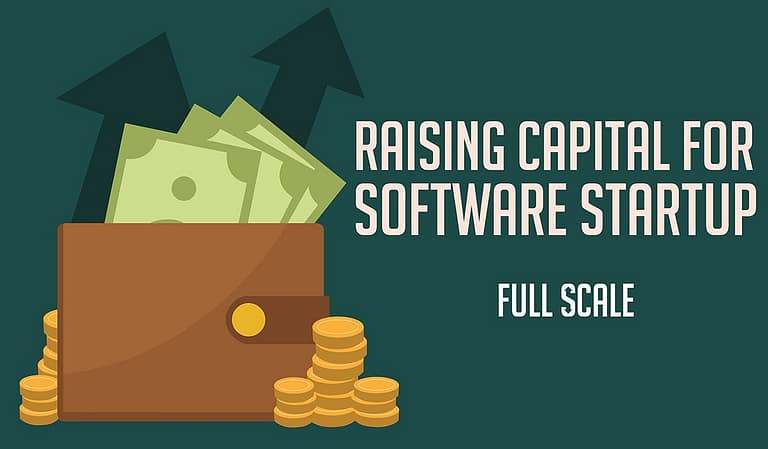Last Updated on 2025-02-28
Raising capital to build your startup can be challenging. It may require a significant amount of money to get your small business off the ground.
If you want to build a startup but don’t have enough funding for it, there are alternative ways for financing. Here’s a roundup of the capital funding options that you can use to your advantage.
As startup owners ourselves, we understand the struggle to build a company from scratch. Starting your own business can be a rewarding experience, BUT it is by no means an easy feat.
Aside from a solid business plan, you need capital investment to bankroll your startup dream. Like any other business, you need money to make money.
If you’re not sure where to start, then you’re in the right place because we can point you to suitable sources to get your startup funded. Check out all these options and let us know which one (or maybe more) works best for your startup.
Related Video:What is a Startup Acquisition?
7 Ways to Get Capital Funding
Angel Investors
While angel funding and venture capital are often confused with one another, they have distinct differences.
Angel investors are high net worth individuals who use their own money to invest in early-stage startups. To be considered an angel investor, you have to have a minimum net worth of $1 million and at least $200,000 annual income.
Venture capital firms don’t use their own money when investing in high-growth startups. Venture funds are capital investments pooled from wealthy individuals, large companies, pension funds, and other financial institutions.
Angel investors are entrepreneurs themselves. Apart from the financial contribution, they can also share their management expertise to help the startups they’re investing in succeed.
They can take an equity stake in a startup in return for their investment, or they can exchange it for convertible debt.
To raise capital for your startup idea, you can approach an angel investment group such as Angel Capital Group and Mid-America Angels or directly to angels themselves.
A great example is the Kansas City Pure Pitch Rally in Kansas City where the Full Scale founders, awarded $70,000 worth of tech resources to winners.
Related Video: Startup Funding
Venture Capital
Another great way to finance your startup is through venture capital (VC). A third-party VC firm manages the venture fund and invests in high-growth startups for their investors, who are mostly big investment companies and wealthy individuals.
Venture capitalists inject capital in the early stages of a startup in return for an equity share. So, going this route would mean that you will be giving up a portion of the ownership of your business.
This is a good alternative for startups that have limited or no access to bank loans and other debt instruments. It doesn’t require collateral as with loaning money from banks.
Your chances of raising capital through a VC fund are high when you can demonstrate a huge growth potential for your startup and a competitive edge with its target market.
Just like angel investment, VCs don’t only provide financial support. They can provide you with the knowledge, industry experience, and a reliable path of growth for your startup.
This is especially helpful for startup owners who may have the best ideas for products or services but lack the skills to grow the company at the beginning.
If you aren’t ready for VC funding yet, a startup accelerator is a good next step. Kansas City’s local Insuretech accelerator has graduated some amazing companies.
Crowdfunding
If angel investors and venture capitalists are beyond your reach, try crowdfunding. It’s a way to fund projects or business ventures by pooling money from a large number of people, mostly through crowdfunding sites.
People and organizations can invest or donate to crowdfunding projects in exchange for a reward or profit. Some may not expect anything in return but simply support projects that they’re interested in.
Kickstarter is one of the most popular crowdfunding platforms, but it’s not the only one. You can turn to these crowdfunding sites as alternative sources for startup capital.
- Indiegogo – Good place for funding tech, design innovations, and other unconventional things. GDP Pocket, a 7-inch pocket PC launched on Indiegogo, raised more than $3 million with over 8,000 backers.
- CircleUp – An investment platform that provides capital resources to consumer goods startup.
- RocketHub – Launched in 2010 to help its thousands of users—entrepreneurs, musicians, game developers, filmmakers, scientists, and artists—raise money and awareness for their projects or startups.
- Fundable – A business crowdfunding platform that enables small companies to get funding from investors, friends, and customers.
- Crowdfunder – An equity crowdfunding site that lets entrepreneurs get access to a network of angel investors and VCs. They guide startups to raise capital at all stages, from pre-seed to Series A.
Convertible Debt
Convertible debt is money loaned by investors to businesses that can be converted into equity or stock ownership in the future. Think of it as a balance between debt and equity financing.
Using convertible debt offers a good option for startups since they don’t restrict cash flow while interest accumulates during the term of the debt. The downside to this type of startup financing is that you surrender some control or ownership of the business.
Personal Savings
If you’ve saved up enough money, why not use it to start your own company? In this way, you won’t have to worry about losing equity to your startup or pay hefty fees and the interest on loans for a business venture that you’re not certain will work in the long run.
In other words, you retain all the profits, and you won’t have to deal with other investors taking a big slice of the cake.
But dipping into your savings can prove to be risky, especially if you’re taking a massive chunk from your nest egg. You may want to reserve a portion of your savings account to cover a few months of operational expenses if you don’t expect to generate profits immediately.
Some entrepreneurs even take out loans from their 401(k) to start a business. Make sure that you understand the risks involved and assess all other options before choosing this route.
Family and Friends
Loans from close friends and family members can get your business off the ground quickly, especially for startups in their early stages. From the investors’ perspective, it’s easier for them to loan money to someone they already know and trust.
We highly recommend that startup owners take this route first before approaching Angels and VCs. It’s better to raise funds from people who already know you personally and professionally.
The downside is that broaching this topic in personal relationships can be challenging at best. You must have professional paperwork to back it up and be 100% transparent about expectations on their investments.
State Grants
When it comes to raising capital, you can apply for government grants and tax incentives available for startups. It’s just a matter of finding one where you meet their criteria.
State grants are considered “free money” which means that it’s an excellent way to get some serious funding for your business. The good thing about state grants is that they are less competitive than federal grants.
Raising Capital for Startup Success
If you’ve been dreaming of starting your own business, now’s the best time to get moving. Don’t let funding stop you from pursuing your startup dream.
First, create a solid business plan with realistic revenue projections. This will convince prospective investors to give your business idea a shot. Applying for a loan from your local bank can be tough, and most of them don’t grant loans to small businesses as they find them very risky.
Try using other options such as angel investors, VCs, crowdfunding platforms, convertible debt, state grants, or you and your friends can pool money together to fund your business. If you need someone to show you the ropes to startup success, we can help you.
Full Scale is an offshore software development company that started as a fledgling startup in Kansas City. We offer web development, QA Testing, project management services, and more! Contact us today to get started.

Matt Watson is a serial tech entrepreneur who has started four companies and had a nine-figure exit. He was the founder and CTO of VinSolutions, the #1 CRM software used in today’s automotive industry. He has over twenty years of experience working as a tech CTO and building cutting-edge SaaS solutions.
As the CEO of Full Scale, he has helped over 100 tech companies build their software services and development teams. Full Scale specializes in helping tech companies grow by augmenting their in-house teams with software development talent from the Philippines.
Matt hosts Startup Hustle, a top podcast about entrepreneurship with over 6 million downloads. He has a wealth of knowledge about startups and business from his personal experience and from interviewing hundreds of other entrepreneurs.





